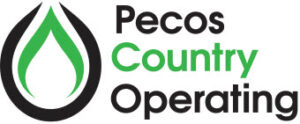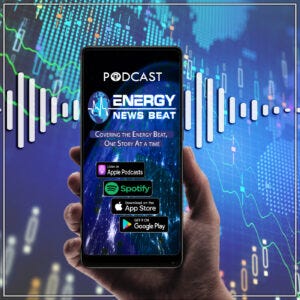We are live on the NAPE Expo floor again as we had a chance to visit with the Texas Christian University Executive Director of the Ralph Lowe Energy Institute Dr. Ann Bluntzer. Her school brings #Energy Industry Perspective to the classroom. We discuss COP28 as well as the huge partnership between TCU and the AAPL. Also, Dr. Bluntzer talks about the employee shortage crisis in the Oil and Gas industry. This is an episode you won’t want to miss. napeexpo.com https://www.neeley.tcu.edu/centers/ra…
Highlights of the Podcast
02:59 – The Energy Institute
03:39 – Industry perspective in the energy sector
06:42 – The average age of a professional working in the energy sector
07:45 – The greatest industry in the world to work for
10:02 – The outcomes of Cop 28 this year
13:20 – About the energy transition
16:08 – The world’s energy problems
18:41 – About the Ralph Lowe Institute
24:40 – The landscape of ESG
Please reach out to Ann Bluntzer, PhD on Linkedin

Check out StatusJet HERE
Video Transcription edited for grammar. We disavow any errors unless they make us look better or smarter.
Rey Treviño [00:00:00] Well, there’s no doubt about it. You can’t be in Texas without talking energy. And of course, got to be talking about Texas Christian University. We talked to the executive director of the TCU, Ralph Lowe Energy Institute, on this episode from the Nape conference on the Crude Truth.
Rey Treviño [00:00:59] Nape is a proud sponsor of the Crude Truth. Be sure to register for the Nape Expo 2024 for February 7th through the ninth at the George R Brown Convention Center in Houston, Texas. Hurry and register today. Nape where deals happen.
Rey Treviño [00:01:48] Well, hello again from the live from the floor here at the Expo 2024. I cannot just be so excited. Here we are on Wednesday. And, right now, as you can see, next to me is my guest. Again, as I mentioned, the executive director of the TCU, Ralph Lowe Energy Institute. Ann Bluntzer. Doctor, how are you?
Dr. Ann Bluntzer [00:02:07] I’m great. Right. Thanks for having me. I get excited every time to be on your show. I think, number one, not only because you do a great job of kind of bringing reality of what’s going on in the industry out to the people. But also because you’re a current student at TCU, getting your MBA in energy.
Rey Treviño [00:02:25] Yes. Coach of finance in there trying city.
Dr. Ann Bluntzer [00:02:28] Yeah. And then also, yeah, of course finance with the MBA. But we’re we’re happy to always be a part. And you you know, let’s talk.
Rey Treviño [00:02:35] I’m excited to be here. And for those of you out there, definitely if you’re looking for a great school, got to do my cheesy plug just because I’m going there. Go frogs. Check out the energy MBA program at TCU. It is just, one of the best, and it’s only going to get better from there, folks. So definitely take a look. And, with you running it and you have been out there officially running the show for two, three years now,
Dr. Ann Bluntzer [00:02:59] the Energy Institute. Yes. I got the honor of, being able to direct the Energy Institute at the business school. A little over two years ago. I’ve been at TCU 12 years and involved in all of our energy graduate work, since since we started that quest in 2012.
Rey Treviño [00:03:17] And, because it used to be a certificate of some forms of then because of your hard work and several others all been able to made this into a wonderful school.
Dr. Ann Bluntzer [00:03:25] I agree, I think it’s primarily on the backs of our industry partners. We made a point a long time ago with some leadership from the top, from our dean and our chancellor, in 2012. That said, if we don’t get industry perspective in the energy sector in our classrooms, this curriculum will not mean as much. And that was a that was a big thing at the time. Higher Ed loves their structure, loves, the traditional academic in front of the classroom that does research and teaches here and there. And Neely Business School took a different approach, and I want to praise them for that. This was this is not popular in higher ed to bring in adjuncts. And we were one of the first, I think, to say, let’s bring in the people that are working every day in this field and put them in front of our, our graduate students about what they need. And if they’re going to hire an MBA out of TCU, what would they want that person to come out of school with? So, I mean, just take a look at our faculty. It’s awesome. The, the different companies from NextEra Energy to Total Energy to your small mom and pop MP doing work in West Texas. Those are those are the folks teaching our energy classes to our MBAs. And so it’s a it’s a unique program. So happy you’re part of it.
Rey Treviño [00:04:43] Well, thank you.
Dr. Ann Bluntzer [00:04:44] And, you know, anyway, enough on that. What else?
Rey Treviño [00:04:47] Well, I mean, let’s talk about that because you’re absolutely right. You’ve got people that are actually doing doing it and you’ve got, professors that are like, hey, here’s what I ran into. And before they give the answer of what they did, they, you know, we sit there, we got to debate and discuss and go from there. And then and then they’ll tell us, hey, this is what we did and whether it worked or it didn’t work. And maybe, you know, y’all’s answer there probably is what we should have done in the first place. Or here’s why we didn’t do that route. And so the life experience is key. And I know in anything in oil and gas, unless you’re actually, you know, rolling your sleeves up in the energy space, it’s like, do you really know what you’re talking about? And your professors there are just top notch. One that comes to mind is, bait. Yeah, yeah. Some baits. And I’m in his class right now, and, I love it. I mean. We sit in there and we just we duke it out and it’s great and good ways. You know we just talk about the sector. He’s I want to say 40 years in the industry. Yeah. If and if not 40 pretty darn close and another world traveler. But okay, y’all started this program in 2012 as a whole. And, you know, let’s talk about where we are today. You know, with the amount of people that are not going into higher education for things in the energy sector, what do you all see in there?
Dr. Ann Bluntzer [00:06:06] Oh, right. It’s a great question. It’s something I spend a lot of time focusing on, primarily driven from our, TCU Energy board, that’s made up of 40 different industry professionals. And they have declared themselves that there’s truly a human capital crisis in our energy industry, the average age of anyone working in the industry, no matter what part of the industry you’re in, continues to climb.
Rey Treviño [00:06:34] Whoa.
Dr. Ann Bluntzer [00:06:35] That is never a good thing. So when it was 35 years old, then it was 37, then it was 40, then it was 43. Now, the average age of a professional working in the energy sector, all the way from the finance side of it to the, you know, boots on the ground geologists 48 years old. So what does that mean? That means no one young coming out of college is going to work in the energy industry, even though we have the jobs. Yeah. Yes, there’s volatility in this industry. And with that comes job security. That’s one factor I would say. The other factor, no question, hands down, is a poor perception of our industry. And in the work that we do. So we’re it is our number one goal. Right now at the Ralph Lowe Energy Institute to grow our energy minor, to get 18 year olds excited about choosing some kind of emphasis or degree in the energy sector somewhere on our campus, whatever it is, whether they are political science major, whether a com major, whether they’re an engineer, whether they’re the business school, you know, how do we get them to get excited about working in what I think is the greatest industry in the world to work for? Yeah. And with and in and so it’s a, it’s a real crisis that is not a healthy number going up to when you’re talking about human resources and the people, they’re going to lead your organization. So it is front and center for us. And I try to highlight it as much as possible. It’s why we’re.
Rey Treviño [00:08:05] Here. Yes, ma’am. That’s right. Yeah. No, I mean, this is this is I mean, I’m blessed to say that I get to go to school at TCU right now. And obviously it’s like, hey, I come, let’s talk about this. You know, this is this is my show, for goodness sakes. I was like, I wanted you to come on. Yeah. To talk about this crisis because, you know, y’all, you’re not the first person to be on the show to say we’re we’re not. We don’t have people for the industry. And one thing I will say about my cohort is we definitely have a higher age average in our cohort, which I do personally like because of that experience. I’m with individuals, however. You know, that means that’s a master’s degree. That’s an MBA. So that means that I don’t know exactly what it is, but it’s definitely higher than 33. Yeah. And well guess what. That’s pretty near ten years already out of college. Yeah. So why are we not getting more young people just to go transition from an undergrad right into an energy MBA. And and it’s like you’re saying they’re not getting excited about it. And, and I do think the media has a has a strong help in that. Me personally right now that’s what I think. But also it’s like, hey guys, energy is not going away. You know, when people ask me, if they ask me, hey, what’s a good investment like real estate, energy or technology? All three are going away and all three are such broad industries, like you mentioned, communications, finance. It’s like we need more people out there talking a good talk about the industry. How do we do that? You know, y’all, y’all brought on a great communicator in, Jennifer Floyd in here. You know, she’s out there now advocating in a way that’s it’s not, you know, bu this or bu that. It’s. Yeah. Everything. And and it has to be that healthy, synergy lack of better cheesy words that it’s like all these energies together are going to help us move forward, and there’s plenty of jobs.
Dr. Ann Bluntzer [00:09:51] Yeah. I mean, you it’s the the challenge is very real. And I’m not saying anything that I don’t think anyone would disagree with me on. You know, the, the, the outcomes of Cop 28 this year. Yes. Right. The the world’s largest conference on what do we need to do as a, as a full global community, to, to, you know, have some kind of mitigation against climate change, whether you agree or disagree. You know, that’s the point of that conference. What typically comes out of that or some general statements that the majority of the people at that conference agrees on. Right. The past couple years, we have made some headway in that all of the above approach, and all of a sudden we’re able to include natural gas as a possible solution, or at least a bridge fuel, or having a realistic conversation around, we are going to need these natural resources for at least a hundred more years. You know, that is not going away. We’re also going to need all of this new, fantastic technology and the renewables and, you know, carbon neutral space. I mean, it it’s all really good things. But this year at Cop 28, they did a reversal. And basically, you know, suggested in a very in a very formal way in some of their intro paragraph language, that we have got to move away from fossil fuels.
Rey Treviño [00:11:17] Yeah.
Dr. Ann Bluntzer [00:11:17] That was not in the past two years. Cop summaries. So that’s not a good sign because then what happens is you’re continuing to build the narrative that that is that the fossil fuel industry is a is a negative on society. And that’s, it’s that’s not what we need here. What if you’re a young 18 year old trying to decide what industry you’re going to go work in? You know, that’s you start hearing global signals like that, that it’s a bad thing. It doesn’t become attractive to you. So, you know, you get anything from, you know, your small science class and eighth grade at your local public high school that is spouting some rhetoric. And then all the way to your largest global conference in the world spouting this. Yeah. And yet we still need all these natural resources. We are going to have a real problem attracting talent to this industry to be able to continue. Yeah. To provide that, that oil and gas that we need for the world to move forward.
Rey Treviño [00:12:16] You’re you’re so right. I for some reason, I didn’t put the two together. It’s like as we continue in cop 28 did that. It’s like, hey it made it sound bad again. And why would anybody want to go into a job? I mean, here we are at Nape, where we’ve got, people putting their boots together to sell. Great. Or, you know, to, to promote their prospects, all across America and the world of drilling new wells or new technology. And there is, renewable space and, all that, but it’s like it’s not going away. And, you know, we had a great chance to talk for a few minutes before, we jumped on here and, you mentioned liquid natural gas and you call it a bridge fuel. And I agree, I think liquid natural gas could be the perfect transition for the next hundred years while we figure out what’s next. Yeah. You know, what are you seeing on that space, president Biden? Just, cut out the, permits on any new liquid natural gas facilities that we can export. And I know you said you just had a great discussion with your students about.
Dr. Ann Bluntzer [00:13:16] Yeah, yeah, I’m glad you asked. And I love that you use the word transition. You know, we hear about the energy transition. I would love for us to start thinking about when we use that word transition. Why are we not saying natural gas is the transition right. That that should be it? I think when people say energy transition, they are thinking a move away from fossil fuel. No, let’s let’s talk about what’s a part of that transition. It will be natural gas. Hands down. Everybody knows that. Everybody agrees with that. So then when you when we know that and that’s a fact, and then you have, you know, our national administration here in the United States basically saying we are not going to allow any more, you know, new opportunities for companies to be able to export what the world needs. There’s a huge misalignment. Again, another signal to the young people, as to, you know, why they shouldn’t come work in this industry. It’s it’s really sad. I, I call it a crisis for a reason. Yeah. You know, when they came out and said that the amount of big major energy companies that do it all, the Chevron’s, the BP’s, the Exxon’s total’s, the oxy, all the biggies, right? Yeah. When they are investing in all different facets of energy and trying their best, and I truly believe it, they are doing their best to make sure every single part of the business that they touch is going to have the absolute most positive ability to have on our environment that it can. They are going to put the resources into doing that, but they can only do that if they can sell their product. Yeah. Right. And so there’s just the misalignment between the reality of what it takes to run a business and also what the global demand is for a product. And then our government wants to try to regulate whether we can sell that and who we’re going to sell it to. To me, it really starts to tiptoe around, you know what we as the U.S. are, which is an open market and a democracy. So I worry about that a lot. I had a great conversation in my international business class yesterday with my undergrads on it, and we debated the whole the whole class period on it. And it was fascinating to see their minds at work and maybe some perspectives that they hadn’t heard before. Okay. And so it was it was really great in in to that. We’ve got a whole group of undergrads from all over the country here today at Nape. Yes. The reason we’re here, yes, is to try to get more young people excited about energy. And so we host, with the partnership with APL. Very generous donation. They donate all the prize money, for the night the case competition. And TCU, hosts it and manages it and tries to promote it and bring in students from all over the world, to help solve the world’s energy problems. So today, right now, we’ve got about 50 students upstairs. They’ve been given the case at 8 a.m. this morning. Typical business school case okay. It’s focused on, the mergers in the EMP world this year a good or a bad thing. Okay. And we need you to talk to us about why, in what direction you think we’ll go from this point forward. Okay. So 2:00 today they’re going to be presenting their findings live. Industry professionals are the votes okay. They’re in there judging and place the votes on who wins. And there’s $40,000 at stake.
Rey Treviño [00:16:41] Yes. Yeah. I was going to say because I know I saw something that showed that there’s that that’s a chunk of change. Yeah, that’s a chunk of change. And I want to say this, everybody out there, before we start to talk about the case complex, because I want to come back to it, I felt your whole passion about why you’re teaching and about the the I felt your passion and your your joy for what you do and bringing energy to the forefront for this younger generation. And, I mean, I just, I felt that I just want the people to know I was like, it’s awesome. And, I mean, it’s it’s such a blessing to have you there leading this because, you know, I always thought about it’s like, why doesn’t then I’ll say this, you know, TCU, you never think about TCU. It’s like, but like I’ve shared with you, I think before, it’s like that’s where the major families in oil and gas are as far as I’m concerned. Yeah. And and it’s like why wasn’t TCU already. And I feel like we’re already at a standard that’s at some of the long term. And that means if we’re already there that means the the ralph lowe energy Institute’s only going to continue to grow. Yeah. And being here at Nape that’s huge. And the fact that you got I’m talking about the mergers and acquisitions. What is your thoughts real quick on that and I’ll throw a curveball. I know we didn’t talk about that.
Dr. Ann Bluntzer [00:17:50] We think it’s great. I love seeing the markets work. Okay. I think it’s great. You know, I mean that things will shift in in obviously, you know there’s a lot of opinions about what happens when the the big get bigger. And, you know, I think if you play your cards right, that opens more opportunities for the little guys to come in and fill some of those niches that we are not going to have anymore when the big get bigger. Yes. So, you know, I think there’s opportunity in everything. And and this is what the market’s dictating. I say you go for it and let the economy soar. It’s it’s better for everybody when you know, we’ve got strong companies providing secure jobs that pay well, that bring power to the world. That’s a great thing.
Rey Treviño [00:18:31] Yes. Well, you know, we can’t complain as long as we got that. It gives us everything we got right now. Yes. And. You know, I know we’re kind of getting close on time, but I would just for those out there, let’s talk about the Ralph Lowe Institute one more time. Who is Ralph Lowe. And just, you know, what is our main focus over there and building that?
Dr. Ann Bluntzer [00:18:48] Yeah. So I mean, our main focus is to make sure that we are empowering tomorrow’s future energy leaders. You know, we need more of them. So right now, our focus is finding more students that can get excited about a future in energy. You know, Ralph Lowe was a original wildcat. Yes. His daughter took over his business in her 20s. Yeah. And so this is a woman, Mary Ralph Lowe, who who was very generous and wanted the institute, named after her. You know, her? Her late father. Because he embodied what this industry is all about, you know, not only the oil and gas side of it, but the innovation that has come in the past 20 years on the renewable side is phenomenal. Yes. Right. You can get an argument about subsidies and all of it. Sure. But the technology is phenomenal and we’re going to keep growing as a population. We are going to need more energy. The low family recognized that and said, let’s in her hold. The thing she is the most passionate about in life are young people, and wants to provide more opportunity for people to get into the business. And so that’s what we are focusing on. We touch a lot of different things. We’re starting to play in the policy space. We’re doing a project right now with the Department of Defense looking at energy security. Yes. We’ve got 48 MBA students right now that are all working on an independent research project. We have about eight faculty within our Energy Institute that touch political science, touch College of Science and Engineering, environmental science, finance in the business school. You name it. We’ve got experts within the industry and on campus that are that are trying to, you know, really have a hand in each of the the different initiatives that are happening around the country. In regard to what the US could be doing globally, to provide more, more energy to more people. Right? That’s a good thing. And so we focus all our curriculum on that. We focus all our student exposure on those things with internships and really trying to connect them with the right companies so they have a great career when they leave TCU. And we’ll continue to have a presence in places like this where, you know, the institute has a ability to to reach new students, new companies, you know, bring it all full circle. And, I love what we’re doing, all of the support we’re getting from the university as a whole.
Rey Treviño [00:21:12] Yes.
Dr. Ann Bluntzer [00:21:13] And what that means for us to be able to have a further reach, is, is really an exciting thing to be a part of.
Rey Treviño [00:21:20] Yes. Well, we’re just getting the support from the school itself. And energy is a big thing, especially today, that they show the support and they know where the future is. It’s like, hey, we need to continue this. Yeah. And I will say this, now that I’ve been there, what a great joy it has been. Two things that, I’ve already had to reflect on myself and how I can be a better person. You know, and it’s been great. The cohort is awesome that I’m a part of. I think, you know, and I’ve said this before to some of the cohort, and we got people from the biggest companies in the nation, part of our cohort, that impact almost from the choices that are being made, with companies right now and, with large companies and also, like the, just, just the work like you talked about our study, I call it basically a master’s thesis. We’re all working on something right now. So, everybody out there, you know, I definitely recommend definitely for people to take a look. And where can they find the Ralph Lowe Institute?
Dr. Ann Bluntzer [00:22:19] Yeah. Thank you. I mean, just go to TCU energy. Google that and it will pull it up. And, you know, an interesting side note for anyone that’s listening, the MBA program you can do while you’re working full time and it is, online or in person. So it can be very flexible. Our students are spread across the United States. The classes are in the evenings during the week. So we try to work around people that have they want to keep their career moving. Yes. And so it is it is very flexible. So we’d love for, for people to look at it in any companies out there, if you have high potential talent and you want to keep them, you know, send them our way. It’s a good it’s a good tool to say we value you as an employee. We want you to get more exposure in, in, you know, a bigger foundation in business. So we we want to send you here.
Rey Treviño [00:23:05] Yes, ma’am. And I want to say two more things just about my experience, ESG. There’s a class that you have on that.
Dr. Ann Bluntzer [00:23:12] Yeah, I teach a class.
Rey Treviño [00:23:13] Yes. Well, I was like, I asked a couple of I was like, well, in that, like, seriously, like you’re being an only gas guy. And they, they sold me on and they’re like, no, man, we’re talking about accounting. We’re talking about, about how the social part really is, you know, they really went into it more and I was like, okay, I need to do this. Yeah. And I didn’t know you were the only teacher.
Dr. Ann Bluntzer [00:23:33] No, you’re getting an argument. I have a sister that, my older. Your sister does not think that we should be teaching this course at the business school, so it’s fun. Dinner bot fodder. Okay. If we talk about. She thinks it’s absurd. Actually is the word she uses. And I’m always telling her I’m like, look, we’re not teaching whether it’s a good or a bad thing. We have students that are getting a business degree that are going to work for companies where these are mandated reports that their investors are asking for it. Whether you agree or disagree with it, you have to prepare young people to be able to talk about it intelligently and honestly. The one thing that could come from it is the more they know about it, the more dangerous they become. And either saying this is something we don’t need to include in our strategy moving forward, or it is. And here’s a way that we can do it to leverage it, right? The idea is let’s give the students, you know, the current temperature and the current tools in regard to what is happening in the ESG space, and it changes every year. This is my third year teaching this course. I actually developed the curriculum, and it is a very different course than it was three years ago. Wow. So I mean, the landscape of ESG has changed drastically. And so, you know, we are just presenting what’s out there and what they need to know for their companies to be able to react to it and leverage it. You know, and just have a better and clear understanding of it as well.
Rey Treviño [00:24:57] Well, again, for everybody out there, TCU energy, take a look at it. And again, I just wanted to talk to mention that ESG partner. And I cannot thank you enough for coming on.
Dr. Ann Bluntzer [00:25:06] Yeah. Thank you.
Rey Treviño [00:25:07] Thank you, thank you.
Dr. Ann Bluntzer [00:25:09] Go frogs.
Rey Treviño [00:25:09] Go frogs. And we’ll see you again on another episode of The Crude Truth.
We want to thank our sponsors of THE CRUDE TRUTH.










Sponsorships are available or get your own corporate brand produced by Sandstone Media.
David Blackmon LinkedIn
The Crude Truth with Rey Trevino
Rey Trevino LinkedIn
Energy Transition Weekly Conversation
David Blackmon LinkedIn
Irina Slav LinkedIn
Armando Cavanha LinkedIn
